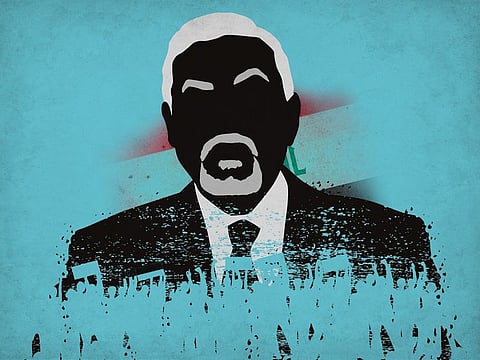Iraq’s new prime minister may not last long
Earning the goodwill of protesters, staging credible elections will be tall orders

The prime ministership of Iraq comes with both the proverbial encumbrances of ill-fated political power: a crown of thorns and a poisoned chalice. Pity Mohammed Tawfik Allawi, who must now wear one and drink from the other.
His nomination, after two months of wrangling between the country’s biggest political blocks, has been rejected out of hand by the young Iraqi protesters whose anti-corruption demonstrations undid his predecessor. His chances of addressing their grievances are slim: The parties backing him have no interest in any reforms.
Allawi is the compromise candidate agreed by Iraq’s most powerful Shiite leaders — Hadi Al Amiri, who is Iran’s man in Baghdad, and the radical cleric-politician Moqtada Al Sadr. Tehran has welcomed his nomination. Al Sadr has gone farther, by withdrawing his supporters from Tahrir Square and other spaces occupied by the protesters. Indeed, the Al Sadrists are now trying to force the protesters to leave.
The new prime minister knows what Al Amiri and Al Sadr expect of him: a carve-up of lucrative government ministries among their supporters and the expulsion of US forces from Iraq. Al Amiri will push for more pro-Iran policies, deepening Iraq’s economic dependence on the Islamic Republic. Al Sadr will seek political dominance, which requires weakening the influence of Iran-backed militias.
Allawi twice served as communications minister under a previous Iranian favourite, prime minister Nouri Al Maliki, but resigned in protest against corruption and his boss’s overtly sectarian politics. Under different circumstances, this would have earned him some goodwill with the protesters, but they see him as a hopelessly compromised member of the discredited political elite, and endorsements from Al Amiri and Al Sadr have hardened their suspicions.
Relying on protesters
And yet, the protesters represent Allawi’s only hope of standing up to his benefactors. If he can harness their outrage and embrace their reform aspirations, he might gain some political space of his own.
That is what Allawi’s predecessor, Adel Abdul Mahdi, should have done — or at least tried to do. He, too, was a compromise candidate beholden to political heavyweights. Rather than co-opt the protests, he presided over a brutal crackdown, involving state security as well as the Shiite militias, which only inflamed the situation. Eventually, he had no option but to quit.
Can Allawi do better? He has started by saying the right things, encouraging the protesters to carry on, and promising political and economic reforms. “I’m your employee carrying your trust, so do not retreat until you get what you want,” he said.
Rhetoric alone will not earn him political capital. The real test for Allawi is whether he can protect the protesters from the security forces and militias. Unlike Al Amiri and Al Sadr, he does not have any muscle to flex in the streets. So his best bet might be to seek the support of the one man they both fear: Grand Ayatollah Ali Sistani.
Iraq’s senior-most cleric has no militia, but his huge Shiite following makes his blessing essential for any prime minister. Al Sistani has expressed sympathy with the protests, opposes Iranian and American influences alike, and has called for a cleansing of country’s politics. Like the protesters, he believes the country needs fresh elections.
Allawi seems to agree, and has promised elections supervised by international monitors. The political parties — and not only the Shiite factions — have an interest in preserving the status quo in parliament and will put up stiff resistance. Overcoming them will require a combination of artful politicking by Allawi and the backing of the Grand Ayatollah, but that may be the only promise the prime minister can keep.
It is no small irony that Allawi has got, without any effort of his own, the job for which his cousin Ayad Allawi fought so hard, through the ballot box as well as back room deal-making. But it is more than likely that his cousin feels more pity than jealousy for the man with the thorny crown and poisoned chalice.
Bobby Ghosh is a columnist and member of the Bloomberg Opinion editorial board.
Sign up for the Daily Briefing
Get the latest news and updates straight to your inbox



